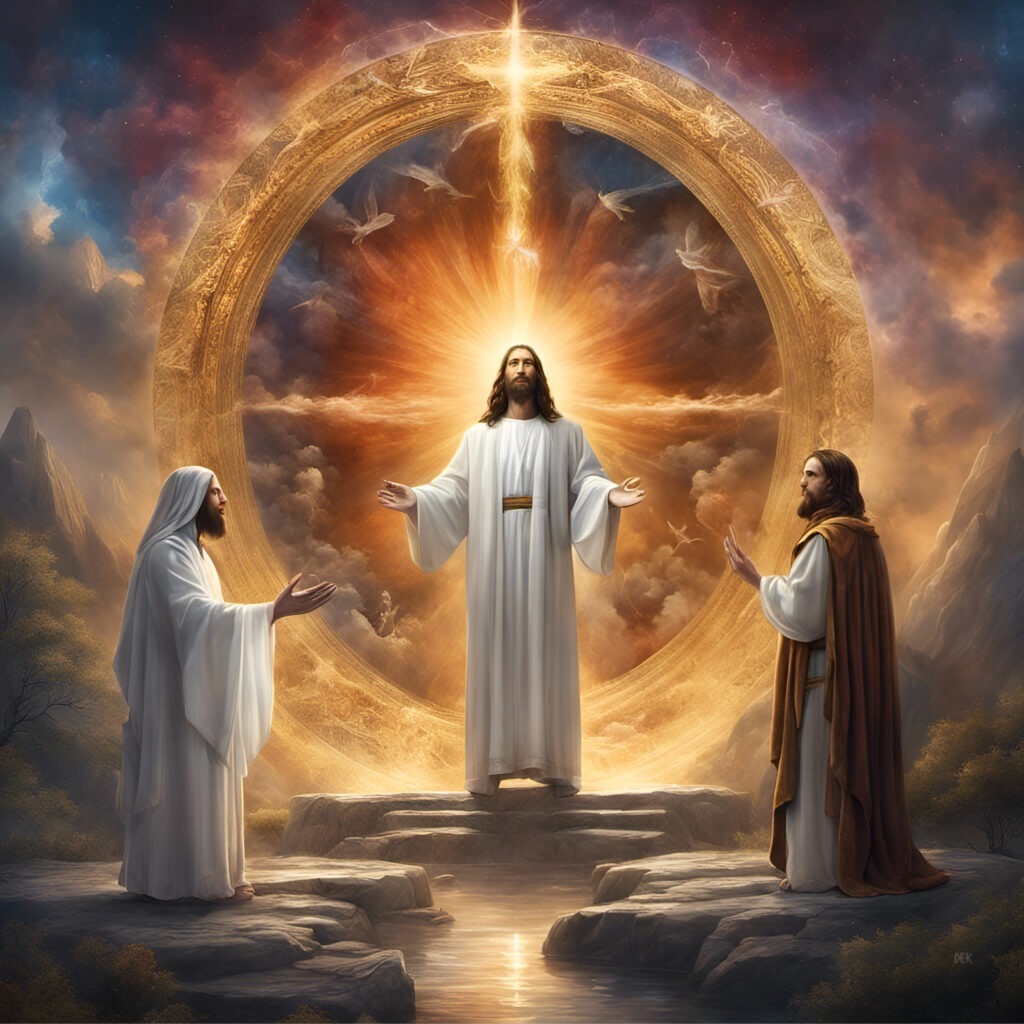
Empowering Believers - Christian Resources for All Paths to Christ
Rediscovering Truth Amidst Apostasy
Inspired by Elder Dallin H. Oaks’ – April 1995
Today’s inspiration is drawn from “Apostasy and Restoration” by Elder Dallin H. Oaks during April 1995.
In a world where knowledge seems to constantly expand, it’s striking to note that, at times, humanity experiences a regression of truth. Discoveries like the Roman fort buried beneath desert sands remind us that crucial knowledge can be distorted, ignored, and even forgotten over time. This phenomenon is not confined to history or archaeology; it extends to religious knowledge as well. Today, we delve into the profound concepts of apostasy and restoration, drawing inspiration from Elder Dallin H. Oaks’ enlightening address.
Starting with the Truth About God
At the heart of any belief system lies the understanding of God. Elder Oaks emphasizes that everything else in our faith stems from comprehending the nature of God and our relationship with Him. While we share many beliefs with other Christian denominations, there are fundamental distinctions that set us apart and bring immense happiness and strength to our lives.

Biblical Foundation of God's Nature
In Christianity, the Godhead is a concept universally accepted, yet differences arise in its interpretation. Our beliefs emphasize the tangible separateness of the three members of the Godhead—God the Father, Jesus Christ, and the Holy Ghost. Unlike the abstract deity posited by some, we affirm that God the Father and Jesus Christ are distinct, glorified beings with tangible, resurrected bodies.
The Bible itself lends credence to these ideas, describing man as created in the image of God and recounting instances like the baptism of Jesus where three separate members of the Godhead were manifest. However, many Christian denominations have veered away from these foundational truths.
The Influence of Greek Philosophy
Elder Oaks provides historical context by highlighting the impact of Greek philosophy on early Christianity. Greek philosophical concepts, such as the belief that physical matter was inherently evil and the view of God as a spirit devoid of feelings or passions, began to influence Christian thought.
This collision between Greek philosophy and the simple, literal faith of early Christians led to disagreements and divisions. Emperor Constantine convened the first churchwide council in A.D. 325 in Nicaea, which marked a significant shift in defining Christian doctrine. The Nicene Creed, formulated at this council, eliminated the distinction between God the Father and God the Son by asserting that they were of “one substance.”
The Great Apostasy
The amalgamation of Greek philosophy and Christian doctrine gave rise to what we refer to as the “Great Apostasy.” During this period, the tangible, personal God described in the Old and New Testaments was gradually replaced by a more abstract, incomprehensible deity. This departure from scriptural truths resulted in a loss of the fullness of truth about the nature of God and the Godhead.
The Restoration of Truth
The pivotal moment in the restoration of truth occurred with Joseph Smith’s First Vision. In this divine encounter, Joseph saw two personages of indescribable glory, God the Father and Jesus Christ, who declared that all existing creeds were an abomination in God’s sight. This declaration condemned the creeds but not those who believed in them.
Subsequent revelations to Joseph Smith reaffirmed fundamental truths about God and the Godhead. These revelations emphasized that God the Father and Jesus Christ are tangible, glorified beings. Such knowledge, though not granting us a full comprehension of God, is essential for our understanding of life’s purpose and our eternal destiny.
Our Eternal Destiny
The restored gospel of Jesus Christ teaches that mortal life serves as our preparation for an eternal destiny—to become like God. Our doctrine holds that we are all children of God, heirs to His glory. Through the Atonement of Jesus Christ and by following His commandments, we can qualify for exaltation or eternal life.
This understanding goes beyond traditional Christianity’s view of heaven and hell, incorporating multiple degrees of glory. In this theology, the celestial kingdom is the highest, where we become like God, dwelling in His presence. This doctrine of eternal progression and exaltation is central to our faith.
A Family-Centered Church
The Church of Jesus Christ of Latter-day Saints stands as a family-centered church in doctrine and practice. Our theology begins with heavenly parents, and our highest aspiration is to become like them. We believe in eternal families, with eternal life representing family life with a loving Father in Heaven, our progenitors, and our posterity.

Sharing the Restored Truth
Our mission is to share these glorious possibilities with all people, regardless of their current beliefs. This is why we send missionaries and build temples—to invite all to partake of the blessings of the restored gospel. We understand that many sincere individuals of various faiths love and serve God to the best of their abilities.
Embrace Truth and Unity
In a world where divisions often overshadow unity, let us recognize the profound truths that unite us as children of God. Let us embrace the knowledge of a loving, tangible God who desires our exaltation. Armed with this understanding, let us work towards unity, compassion, and respect among all people, regardless of their religious backgrounds.
As we seek to understand and uplift one another, we contribute to making the world a better place. Our actions, fueled by the truths we hold dear, can foster unity, love, and harmony. Let us strive to live the principles of the restored gospel, exemplifying the love and kindness taught by the Savior, Jesus Christ.
May we remember that we are all children of God, destined for a glorious future, and may this understanding guide our interactions and efforts to create a more loving and unified world. Link to the original: Click Here
God Is Available. He Loves You…Do You Want Help?…see Prayers Answered”
YOUR FEEDBACK IS IMPORTANT TO US!
Hi there!
Thank you for visiting our Christian Resource website. We’re building a special place here that brings Christians together from all walks of life, and your help would be great!
What we need from you are suggestions. Ideas for things we can include on our site that would help you, and other Christians, to learn, grow, and feel united in faith. Maybe there’s a specific topic you’d like to see covered, a prayer that touched your heart, or a Christian song that’s been on your mind.
This is a place for all of us, so let’s keep it friendly. We’re cool with different opinions – that’s how we learn from each other! But let’s remember to share our thoughts respectfully, with the kind of love that Jesus showed us. No room for ugliness or bashing here.
We appreciate your time and look forward to hearing what great ideas you have to make our site even better. Together, we can create a place that truly serves and unifies the Christian community.